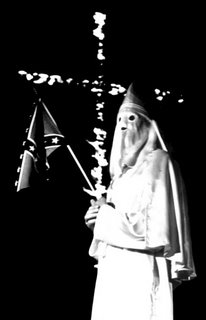
America has been asked, from forces within, to supply answers to questions of cultural values. We're at a political juncture that demands, once again, that we define who we are as a people: whether our orchestras of fear will drown out our cries for tolerance, and whether our impulses toward ethnocentrism will bully our collective pysche into submission. This call for affirmation is not new. Nativism has played an important role in shaping American history, and, once again, promises to take center stage in the theater of cultural agitation. My paper on the wave of nativism from 1900 to 1930 is apropos, if you will: American society esteems itself as a sanctuary for the tired, the poor, and the huddled masses of the world. It adamantly claims to celebrate the principles of rowdy ethnic pluralism and colorful cultural diversity at the core of its identity. However, the proverbial melting pot of American society has not, and perhaps never will, epitomize the egalitarian spirit of the American Dream ‚– the belief that this nation is an unlimited beacon of hope and opportunity. From the 1798 Alien Acts, which required the immediate expulsion of foreigners ‚“dangerous to the peace and safety of the
No comments:
Post a Comment